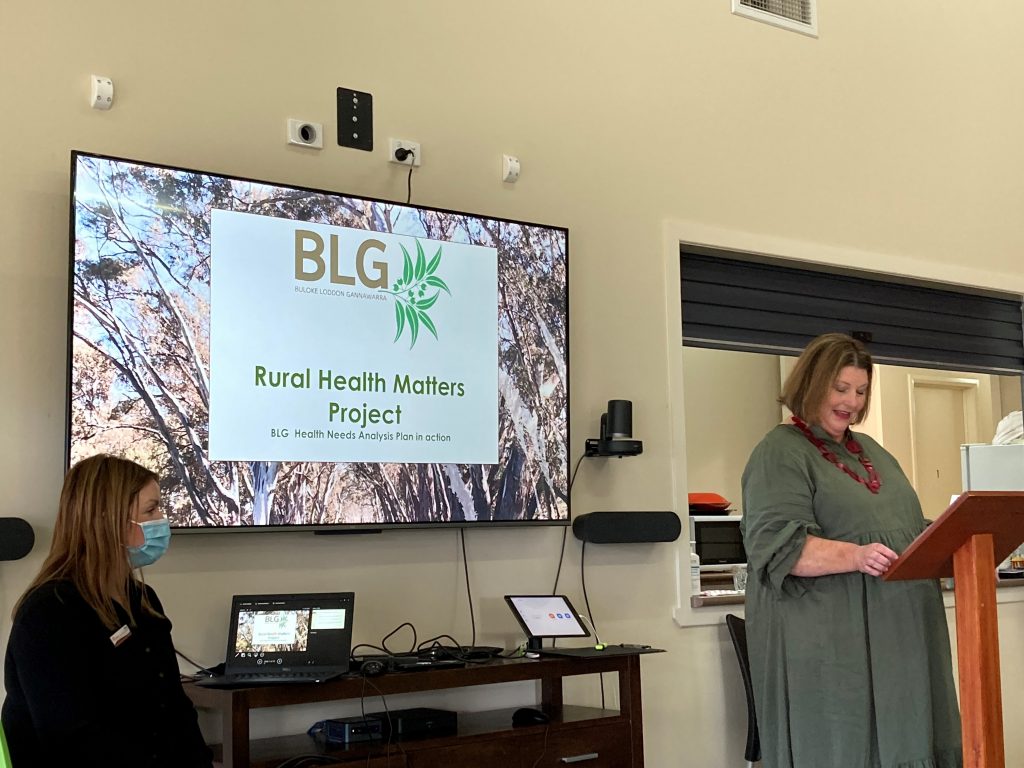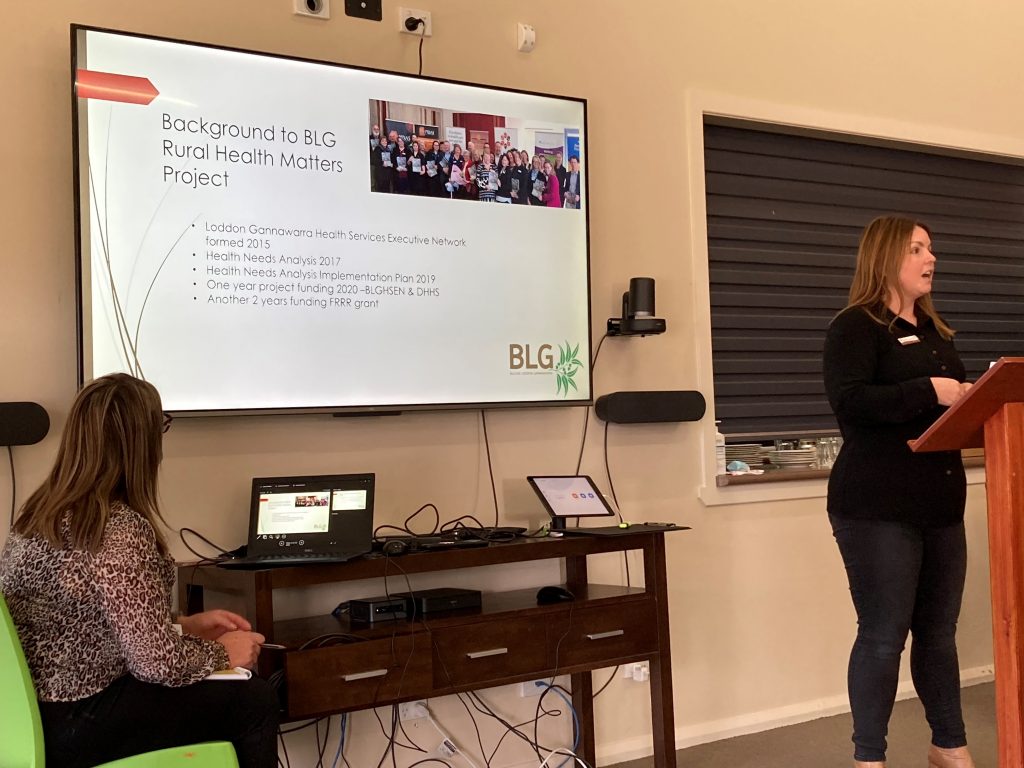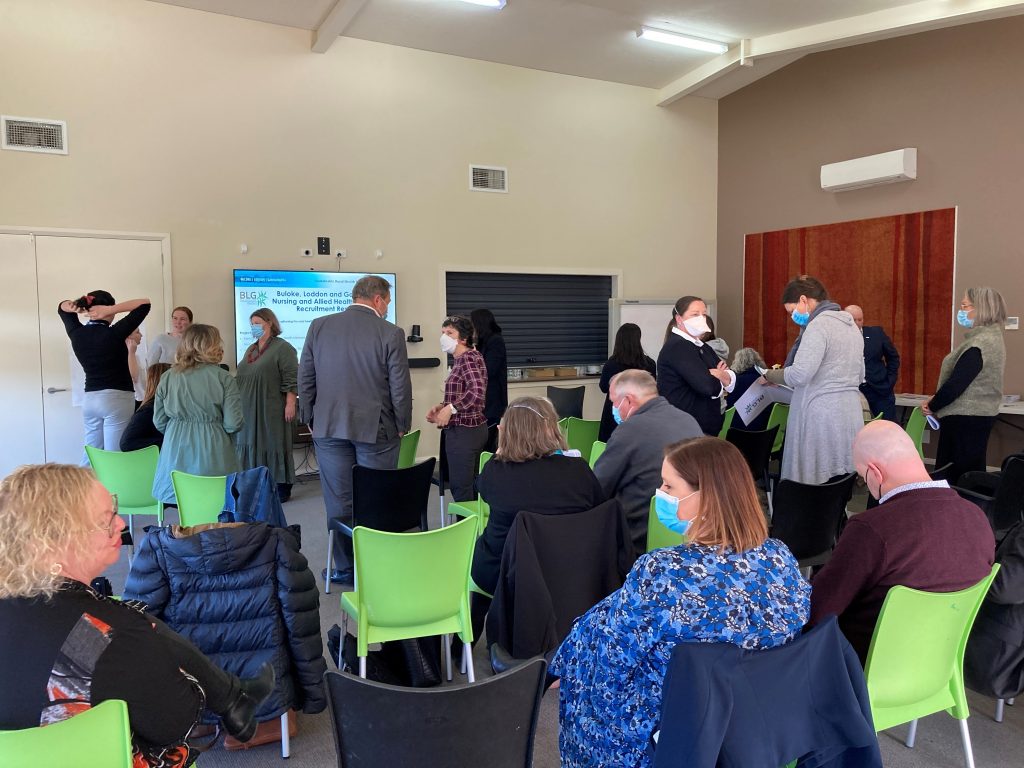Community stories: 28 September 2022
Health care in rural areas is so often lacking and this scarcity of services, coupled with workforce shortages, means that many chronic health conditions are poorly managed and preventative health programs can be hard to find.
That’s why our Program Coordinator, Jeanice Henderson, was excited to travel to Kerang in northern Victoria last month to learn more about the progress of the innovative Rural Health Matters project.
Funded through an FRRR Enhancing Country Health Outcomes (ECHO) grant in 2020, Northern District Community Health (NDCH) is making good use of their $115,000 grant, funded by Beyond Medical Education. They have employed Emily Wood as Buloke, Loddon and Gannawarra (BLG) Project Coordinator, and are leveraging a truly inspirational health partnership spanning three Local Government Areas and multiple health services. This collaborative placed-based, systems approach is delivering a suite of local initiatives to help improve the current and emerging health needs for BLG Shire residents.
Plans for the original launch of the Rural Health Matters project were thwarted by COVID lockdowns. However, Mandy Hutchinson, CEO of NDCH said the delays meant the August event became a real celebration of what has been achieved so far and what is to come; a chance to share and applaud the amazing work and local partnerships that are starting to shift the dial on local health outcomes.
It was easy to see from the original grant application that a lot of the hard work had already been done. The BLG Local Health Community Services had researched and created the ambitious BLG Health Needs implementation plan, and made a solid start on various projects.
The FRRR ECHO grant is helping them to take this to the next level. Emily has been tasked with mapping the current health service provision across the three Shires and identifying the existing gaps and opportunities for further collaboration. She is also responsible for running a community awareness campaign for Heart Health risk factors; developing an allied health community of practice with a focus on chronic disease management and bringing people together for an annual chronic health forum; and working closely with new initiatives such as the Sustainable Rural Health Project.
Emily said that the ECHO grant for the Rural Health Matters (RHM) project has enabled a backbone for additional work to be developed, implemented, or supported and promoted across the BLG region.
“Alongside the identified KPI’s of the RHM project, there has been the opportunity to continue facilitation of an existing Chronic Disease Management: Community of Practice (COP) for allied health professionals and nurses which had previously had facilitation funding for 12 months through Murray PHN. This role enabled not only the continuation of the COP but also allowed me to act as a conduit between the systems level planning and the on the ground experience and feedback of the allied health staff – as was the case with the Murray PHN Sustainable Rural Health project.
“I have also been able to support the application for the Smoking Research Project, which has since been funded by the Department of Health. Currently the RHM project is also supporting the facilitation of a reference group for the Smoking Research Project and the development of an EOI for the position.
“Alongside this work, the RHM project has enabled me to participate in a range of BLG network meetings involving Community Health and Health Promotion – ensuring alignment of work and priorities where possible but also avoiding duplication. I’ve also been able to support and work closely with the Murray PHN Sustainable Rural Health Project, the AgriSafe Clinics at NDCH and both the MoveIT! Project and the Healthy Heart of Victoria project in Loddon.
“Lastly, it cannot be overlooked that the meetings of the BLG for the RHM project oversight also facilitated COVID coordination and support between local health services through sharing of learnings, experiences and challenges during meetings. The ongoing opportunity for the health services across the BLG region to discuss COVID at these meetings has not only strengthened relationships but created partnerships and pathways for support that will continue to benefit the BLG community.”
Jeanice said, “It was really heart-warming to see and feel the incredible level of genuine enthusiasm and commitment in the room on the day. The depth and breadth of collaboration between the groups represented at the event was amazing, but so too their willingness to seek greater collaboration with others. It was also inspirational and affirming to hear how the ECHO grant has triggered further investment.“




